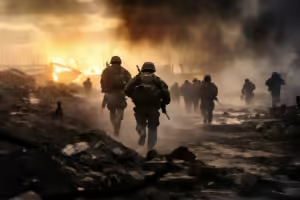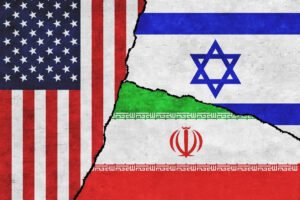Will Israel retaliate against Iran. How might Israel react to an attack from Iran, and would it be capable of managing a potential war?
Israel’s leadership is deliberating its response to Iran’s unprecedented missile and drone attack, largely intercepted with Western assistance. The challenge is balancing deterrence without escalating into full-scale war. While an immediate strike on Iran seems unlikely, all options remain open. Key factors include Iran’s potential counterstrike, U.S. opposition to escalation, and Israel’s ongoing Gaza conflict. Possible responses range from direct military action to covert operations like cyber-attacks. A broader war involving Hezbollah poses significant risks, stretching Israel’s resources. Iran, though militarily strong, faces economic struggles. The U.S. is hesitant to intervene directly but may impose further sanctions on Iran.

Will Israel retaliate against Iran. How might Israel react to an attack from Iran, and would it be capable of managing a potential war?
Israel’s leadership, including Prime Minister Benjamin Netanyahu, Defense Minister Yoav Gallant, and former Defense Minister Benny Gantz, has been deliberating on how to respond to Iran’s unprecedented direct attack. The assault involved over 300 missiles and drones, most of which were intercepted with assistance from the U.S., U.K., France, and Jordan.
A key challenge for Israel is balancing its response: it must demonstrate that such aggression will not go unanswered while also considering Tehran’s warning that any retaliation will trigger an even stronger reaction. Despite significant security concerns, statements from Gallant and Gantz suggest that an immediate response against Iran itself is unlikely, though Netanyahu has yet to make a final decision. Military spokesperson Rear Admiral Daniel Hagari has confirmed that Israel is evaluating both offensive and defensive options.
Before taking action, Israel must consider three critical factors, as noted by Raz Zimmit from Israel’s Institute for National Security Studies:
- Iran’s potential reaction – Iran has warned that further escalation will lead to a stronger counterstrike.
- The stance of the U.S. – President Biden aims to prevent further escalation and end the current cycle of conflict.
- Existing military engagements – Since October 7, Israel has been focused on operations in Gaza and has sought to avoid opening new fronts.

Israel’s potential responses range from direct military strikes on Iranian targets—which could escalate into full-scale war—to covert operations like cyber-attacks or targeting Iranian assets in Syria. A more measured approach could involve attacking drone production sites while maintaining plausible deniability.

While Israel is better prepared than Iran for a multi-front war, the biggest threat comes from Hezbollah in Lebanon. A regional war would demand extensive military resources, including weapons and air defense systems. Recent reports of ammunition shortages and the strain on Israel’s defense systems highlight the risks of prolonged engagement. Additionally, the economy would suffer due to mobilization, infrastructure damage, and disruptions to daily life.

Iran, with a standing army of 580,000 troops and an estimated 3,000 ballistic missiles, is heavily militarized but faces economic hardships due to extensive sanctions. Tehran retaliated against Israel following the April 1 airstrike on an Iranian diplomatic facility in Damascus, which killed a high-ranking Iranian commander.

The level of U.S. involvement would significantly impact the outcome of any conflict. While the U.S. has supported Israel’s defense, it has indicated it will not participate in direct strikes against Iran. Western nations, including the U.K., are also considering additional sanctions on Iran.
Ultimately, Israel’s response will depend on the calculated risks of escalation, military preparedness, and diplomatic considerations. It must weigh the potential for further Iranian retaliation, the impact on its ongoing operations in Gaza, regional stability, and international pressure. Coordination with allies, resource availability, and domestic political factors will also influence the final decision.
Check out TimesWordle.com for all the latest news
You must be logged in to post a comment.